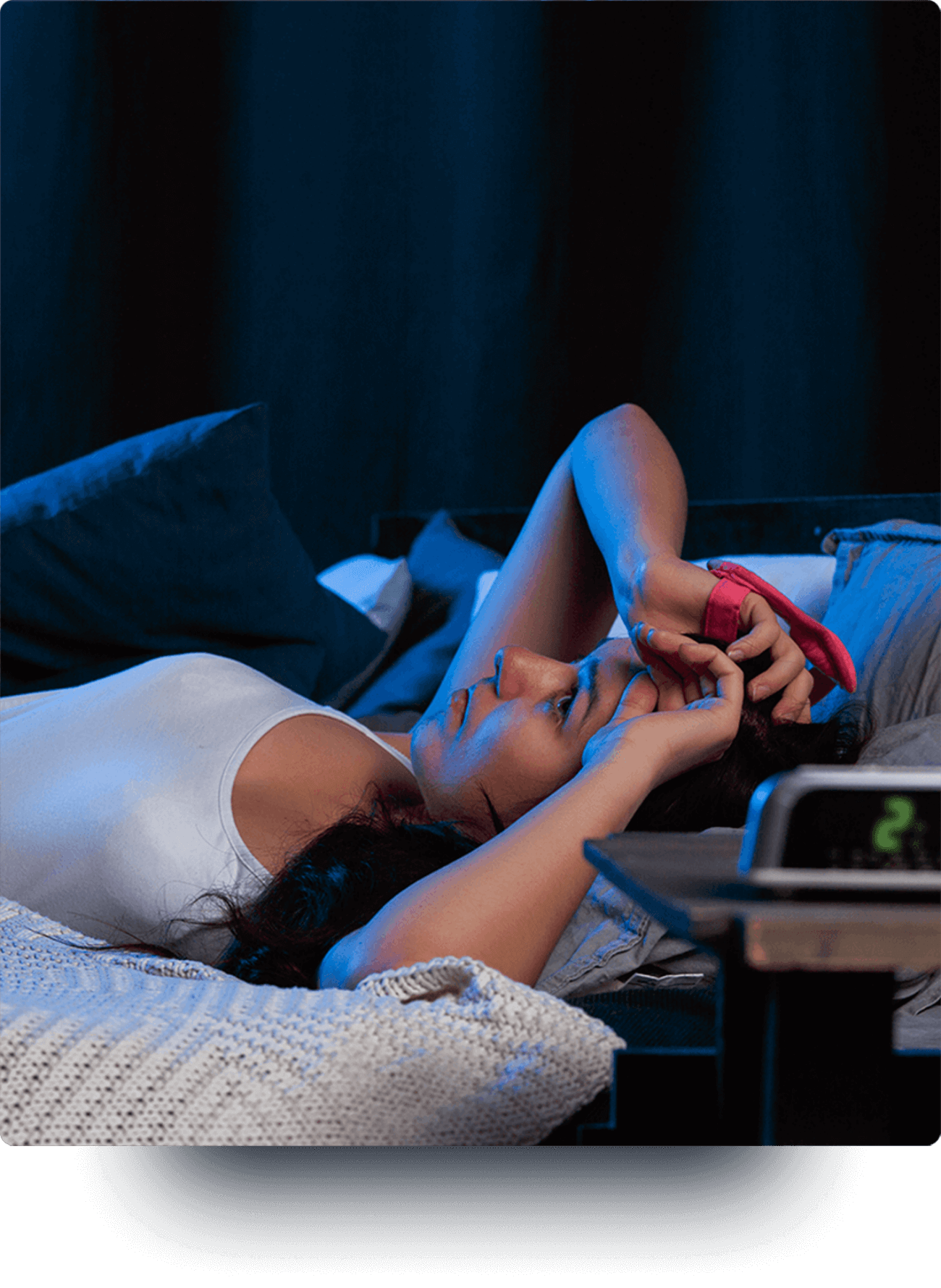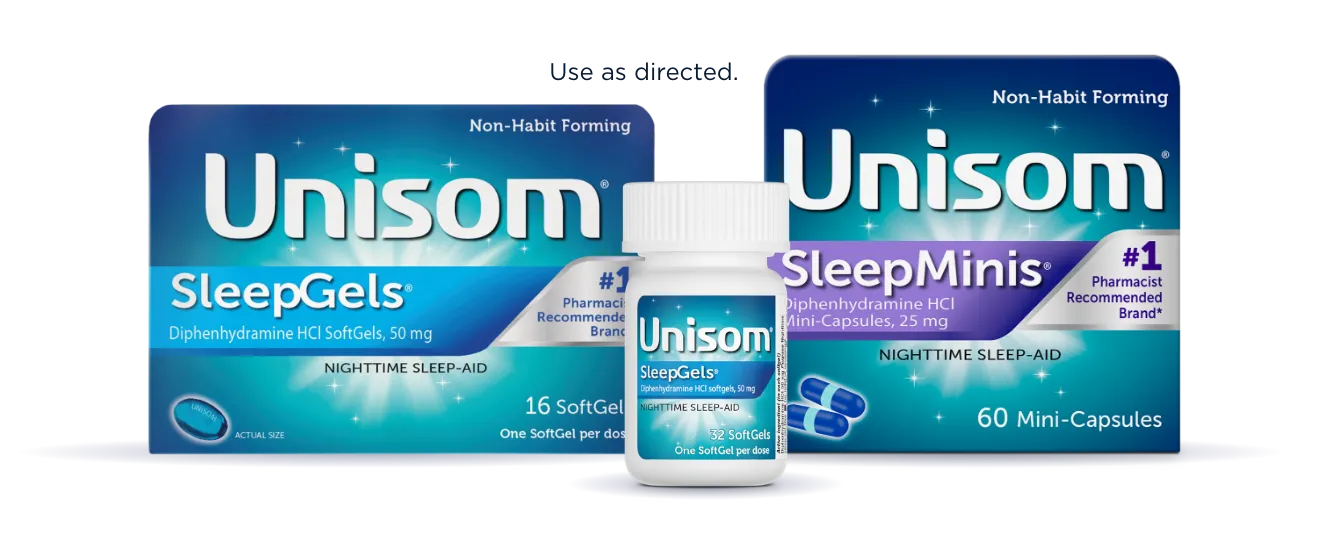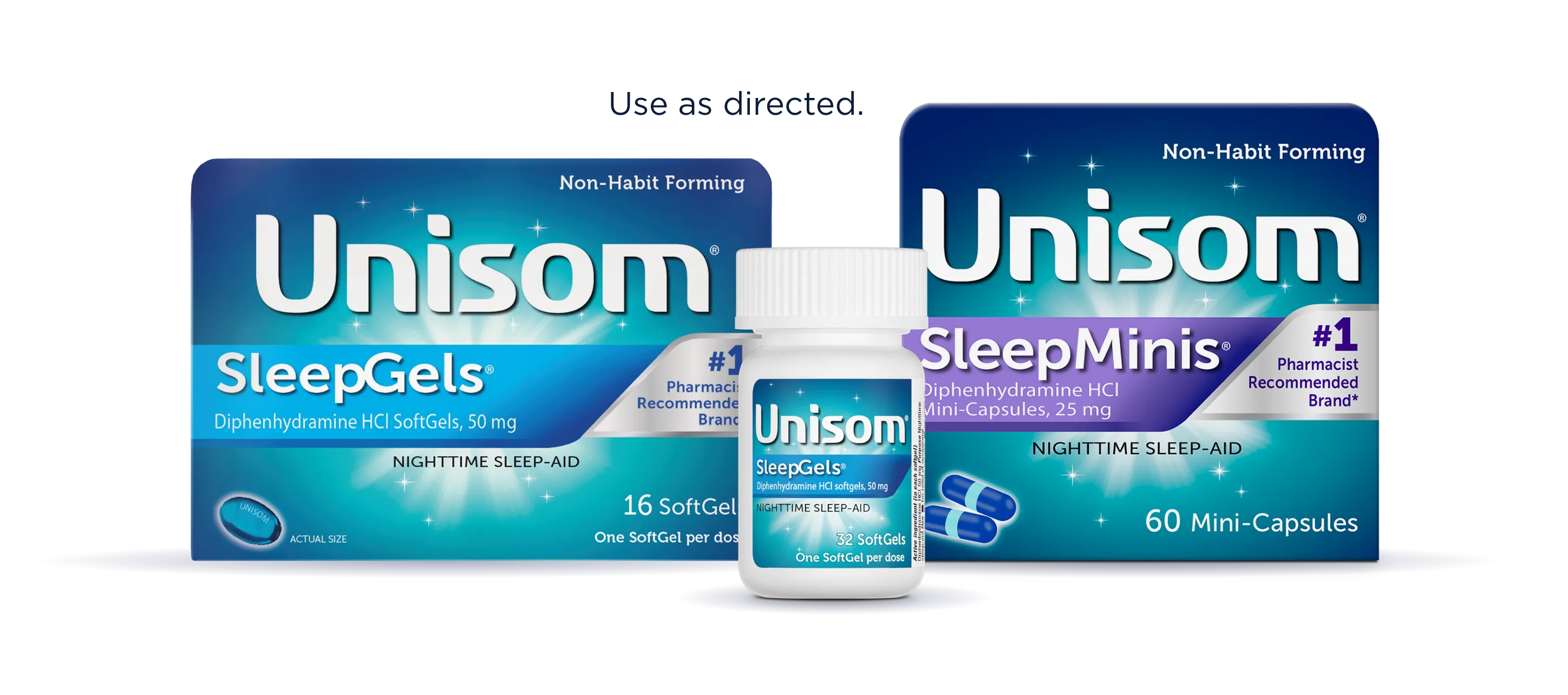Getting too little sleep can really take its toll. Being sleep-deprived over time can weaken your nervous and immune systems. It can also impede decision-making, cause emotional swings, and make social connections difficult. And it can make you very grouchy.1 If you have ongoing issues with sleep, speak to a healthcare professional.
There are so many reasons you could be having trouble sleeping: stress, illness or injury, too much stimulation, or disruptions to your sleep schedule.1
Although our eyes are closed, our brains are actually quite active while we're asleep.1 And sleep has a big impact on our day-to-day functions, as well as our physical and mental health.1 So if you're having trouble sleeping, it's important to try and figure out why.
Stress and sleep
Stress makes sleep difficult. Stressing about it can make it even worse.
Stress can impact your life in many different ways. Could be headaches, stomachaches, sore muscles, increased blood pressure, or increased perspiration. You could also find it much harder to get a good night’s sleep.2
And lack of sleep can make life at home and work more difficult, which just creates more stress. Which makes it that much harder to sleep.3

It’s clear that the more you worry, the worse stress gets.
The best first step is to recognize how you feel and how you react to stressful situations — and then take action before stress starts preventing you from getting the rest you need.2 The easiest things to try are relaxation, breathing, and visualization exercises.2
Coping with pain
One in five Americans experience chronic pain. And one in four people with chronic pain also have sleep problems.4
Pain and sleep have a volatile relationship. Many state that a restful night’s sleep helps ease chronic pain, but it’s hard to get the rest you need when pain is keeping you up. Researchers have shown how short sleep times, fragmented sleep, and poor sleep quality can lead to a heightened sensitivity to pain.4
Getting to sleep while dealing with pain:
- Follow mindfulness techniques. Deep breathing, meditation, and guided imagery can adjust how you experience pain by distracting your central nervous system.4
- Get up. If you lay awake focused on pain, get up, distract yourself for awhile until you feel tired, and try going to sleep again.4
- Check your mattress and pillow. People with lower back issues may find it uncomfortable to sleep on their back or stomach. A mattress and pillow designed to cushion pressure points may help alleviate some of the pain.4
- Improve sleep hygiene. Good sleep habits set you up for a good night’s sleep.4
Overstimulation
When you get in bed and feel like your mind is spinning a mile a minute, it's because your brain still thinks it’s time to get things done.
Too much stimulation can throw off your sleep routine and have a negative impact on your sleep hygiene. So an afternoon cup of coffee or scrolling on your phone too close to bedtime might be making it harder to drift off.
In fact, your day is filled with stimulants that can keep you up at night. Consider what’s keeping you up, why you should prioritize sleep, and take some steps toward better sleep.
Some things that might be causing restless nights:
- Screen time. Your bedtime scrolling and your partner’s late TV habit might be keeping you up. Try turning off electronics at least an hour before bed.⁵
- Light. Unwanted light can signal activity time to your body. Close your curtains so you don’t wake up too early,6 and consider using an eye mask.
- Intake. Caffeine needs more than 2-3 hours before bedtime not to upset sleep. "Limit caffeinated products in the afternoon and stop consuming food, cigarettes and alcohol 2-3 hours before bedtime."
Disruptors and how to plan for them
Disruptors are the worst — they’re totally unexpected and can give you a jolt before you fall asleep or in the middle of the night.
Here’s how it goes: Turn off the lights. Get under the covers. Shut your eyes. Then somewhere between a millisecond later and deep sleep — BOOM! It’s either thunder or your partner’s nightly snores.
Unfortunately, sharing your sleep space isn’t the only thing that can interrupt your sleep.
Your partner’s tossing and turning might wake you up. But you should avoid eating too close to bedtime — including midnight snacks — to improve the quality of your sleep.6
You can’t control every disruption, but you can plan for them.

Here are some things that can disrupt your sleep and how to plan around them:
- An irregular sleep schedule. Implement regular morning and bedtime routines around the same times each day.4
- Noise. Extraneous noise can disrupt sleep. If you have loud neighbors, try adding background noise like a fan or white noise machine to tune them out.5
- Light. Your bedroom should be dark. Try a blackout shade to block excess light and dim the light on your digital clock.7
- Indigestion. Watch what you eat, and when you eat it. It's best to stop eating two to three hours before bed.5
- All-nighters. Staying up for hours on end can have a negative long-term effect on your sleep rhythm, so try to avoid this at all cost.8
Rest assured
Sometimes you just want a little help sleeping. And you can count on Unisom®.
Unisom® is the #1 doctor-recommended OTC sleep-aid, with a range of non-habit-forming options to help you fall asleep and wake up feeling refreshed.
Unisom® SleepGels® contain the histamine blocker diphenhydramine HCl. Blocking histamine production can help you fall asleep faster and stay asleep.
Unisom® SleepTabs® contain doxylamine succinate, which is a clinical-strength histamine blocker that works in a similar fashion to diphenhydramine. Unisom® SleepTabs® can help you fall asleep 33% faster and get a full night's sleep.
Find the Unisom® product that’s right for you.
Professional References
1. American Sleep Association, Editors. What is Sleep and Why is It Important? American Sleep Association (sleepassociation.org).
2. Cheryl Tierney, MD; Kelly Mahler, OTR/L; Brittany Friedson. Trouble Sleeping? Listen to What Your Body Is Telling You. American Sleep Association (http://www.sleepassociation.org).
3. American Sleep Association, Editors. The Impact of Job Stress on Sleep Patterns. American Sleep Association (sleepassociation.org)
4. Sleep Foundation, editors. December 4, 2020, Pain and Sleep. Sleep Foundation (https://www.sleepfoundation.org/).
5. The Better Sleep Council, editors. 2018, Why do I still wake up tired? The Better Sleep Council (http://www.bettersleep.org).
6. National Sleep Foundation, editors. May, 2020, 10 Tips for a Better Night’s Sleep. National Sleep Foundation (https://www.thensf.org/).
7. American Sleep Association, editors. 2021, Calming Rituals to Help You Fall Asleep. American Sleep Association (http://www.sleepassociation.org).
8. Sleep Foundation, editors. November, 2020, Why Are All-Nighters Harmful? Sleep Foundation (https://www.sleepfoundation.org/).
Related articles
†This statement has not been evaluated by the Food and Drug Administration. This product is not intended to diagnose, treat, cure or prevent any disease.





